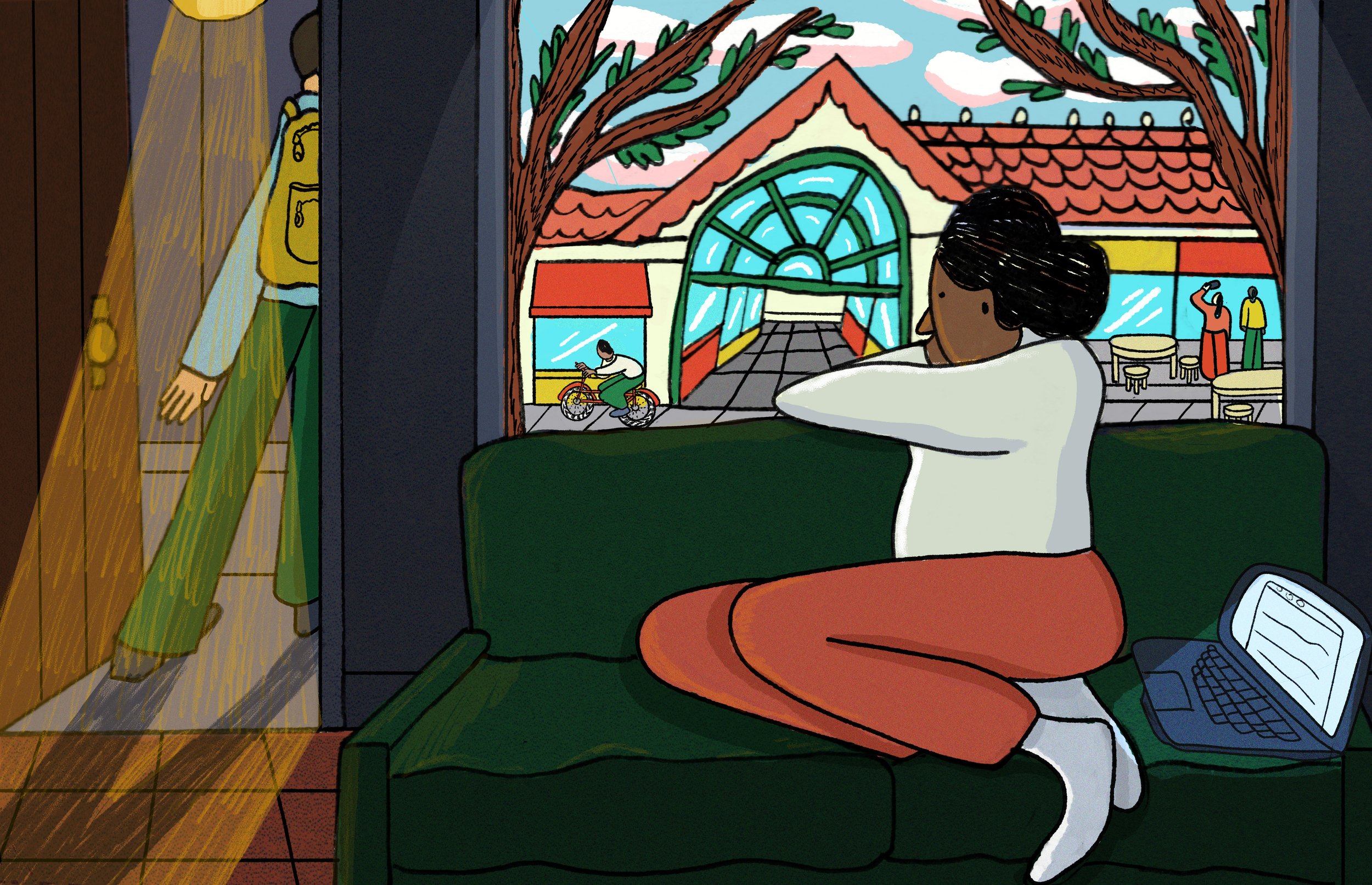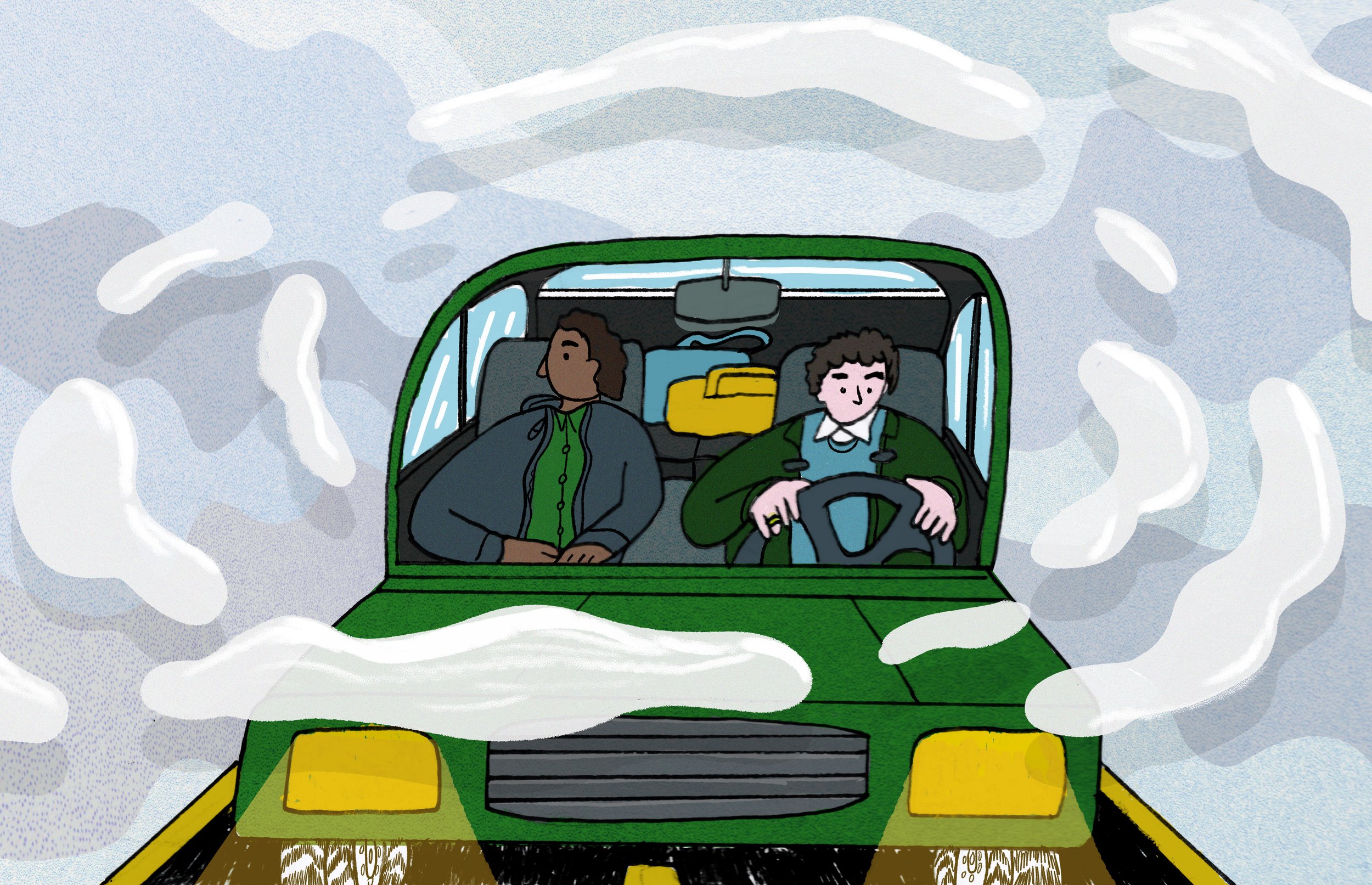6 a.m. in Mathilil

6 a.m. in Mathilil is like watching a sliver of another world pass over ours.
As I walked, my sneaker bottoms scraped across little pebbles. The asphalt sloped downhill to one of the brackish inlets that spool through coastal Kerala like dye dropped in water. The street swerved left along the bank, then ambled off into palm trees and low green.
I stopped at the bend and looked out, camera hanging off my shoulder. Mist fuzzed over the water, draping everything in the colors of milk and chrome. Two fishermen floated into view like shadows untethered to bodies, their boat sliding across a white plane that seemed to have sacrificed its surface for boundless depth. One of them hunched to paddle across the still water, the other stood at the prow, right leg firmly out front. I raised my camera. It felt like I was trying to photograph two people on the other side of a strange curtain, figures who occupied a separate dimension from mine, as though they would never hear me if I called.
Everything was quiet. My ears couldn’t pick up the water lilting against the wood of their boat, or the lap of their single oar as it dipped below the surface. In the distant background, the opposite shore rose grayly until it frayed into canopy. I waited for the mass of trees to give the fishermen a backdrop, a frame of reference for anyone who would look at the photo, and then I took what felt like 100 shots in hopes that at least one would capture what I saw: two bodies crossing over. They drifted past the dim trees until they both dissolved, and I lowered my camera. I walked on, and already the sun was scrubbing away the mist.
Water molted into a metallic blue. Those distant trees flushed with green. Some type of fruit—oranges? lemons?—hung from them like rounded jewels. They stretched on toward the huge yellow construction vehicles that spent their days scraping out the bottom of the inlet, ripping up the places fish go to breed, flattening the muddy bottom for the concrete arches that would support yet another overpass.
“6 a.m. in Mathilil is like watching a sliver of another world pass over ours. ”
I turned around and trudged back uphill. A few dogs had curled themselves along the side of the road, baking in the climbing sun like a row of buns. I detoured down side streets whenever I saw them, paid too much attention to old boats dumped in patches of shin-high weeds. I sauntered past the pink gate of the hotel I would return to in an hour, and next door found what I thought was a park, a thin dirt trail that rivered off between two rows of trees. There were no benches, but behind the trees was a low stone wall. I crunched through the brush and sat, pulled my book from my backpack to pass the hour but found I couldn’t focus. Leaves bobbed and blades of grass twitched. Black ants pottered over my shoes. In the branches above I saw a hawk, peering down at the open ground. For a moment she was unmoving, then she jerked her head in the direction of a noise I hadn’t heard, something from the soundscape of a world briefly crossing paths with mine.
About the Author
Colin Daileda is a freelance journalist in Bengaluru, India. His reporting, essays, and photography have been published in Longreads, Atlas Obscura, Popula, and many others. Freelancing has taken him up to some of the highest roadways on Earth, in the Indian Himalayas, down to the flat, mine-filled lagoons of Jaffna, Sri Lanka. Before freelancing, he traveled around the United States for Mashable, writing about state violence and social justice.
Illustration by Owen Murray











